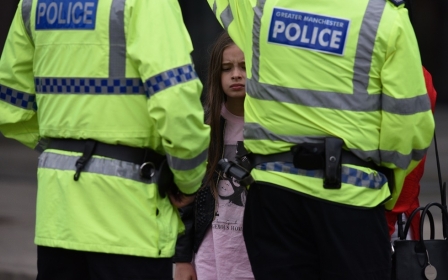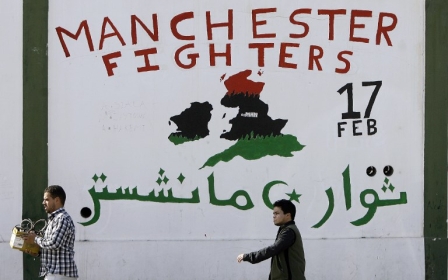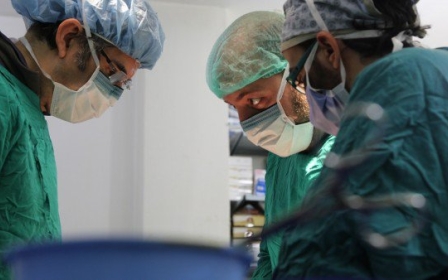UK election: Tories under fire for failures of Libya intervention
Britain’s ruling Conservative Party came under fire for the 2011 intervention in Libya, while its own minister criticised Britain's failures in Syria, during a foreign policy debate a week before the UK's snap general election.
At a debate at the Royal United Services Institute (RUSI) in London, Emily Thornberry, Labour's shadow foreign secretary, said she had not voted for the Nato intervention in 2011 that went on to "fundamentally destabilise Libya".
She said the intervention had led to "a large amount of ungoverned space and that directly leads to us being less safe".
Tobias Ellwood, the Foreign Office minister, had earlier said that Britain "had a responsibility to protect" in Libya but said that the previous coalition government had allowed Russia to gain the upper hand by failing to intervene in Syria in 2013.
The debate comes a week after Salman Abedi, a British-Libyan, murdered 22 people at an Ariana Grande concert in Manchester.
Last week, Middle East Eye revealed that Britain’s domestic intelligence agency had given a green light for Libyans from Britain to join the fight against Gaddafi in 2011.
Thornberry said a Labour government would learn the "lessons of Chilcot" - the public inquiry into Britain’s role in the Iraq war – and not intervene in countries "unless we have an idea of what to do after".
The Conservatives also came in for strong criticism from the Liberal Democrat foreign affairs spokesman, Tom Brake, who said the Conservative government did not have "a clear plan of action after".
Ellwood appeared to concede ground when he said in past interventions "as much as we may win the war, we then fail to win the peace".
He also chided the previous coalition government between his party and the Liberal Democrats for not taking firm military action against the Syrian government after a devastating chemical attack in Ghouta in 2013.
"The biggest mistake we made was in August 2013 when we didn’t intervene," Ellwood said.
"As soon as we blinked," he added, "Russia then knew they could move in."
Brake said he also "regretted the failure" of the UK government to take action against Syrian leader Bashar al-Assad in 2013.
The Green Party's Rebecca Johnson was interrupted by Lindsey Hilsum while claiming it was not clear at the time who had first used chemical weapons at Ghouta.
"I was working on the story all week – it was completely clear," Hilsum said.
Thornberry said that given the proliferation of groups in the country it would be unclear "on what side one would intervene on".
When given a chance to summarise their foreign policy position, Ellwood said that he saw Britain as a "force for good" and that "we walk tall across the world stage".
Johnson said Britain "needed to improve" its domestic and international policies so that it did not put its security in jeopardy and that it ought to take a "human rights" approach to foreign policy.
Brake said his party would back institutions such as Nato and the UN while Thornberry said Britain needed to be "less arrogant but more confident" so that it could become "a place in the world that people could be proud of".
Donald Trump also came under fire.
Ellwood talked up his party’s ability to influence the president's decision-making and that because he was elected they were duty-bound to work with him. The Greens were critical of Trump's stance on green issues, with Labour and the Liberals denying that he shared the same values as Britain.
"We do not share values with president Trump," Thornberry said.
Stay informed with MEE's newsletters
Sign up to get the latest alerts, insights and analysis, starting with Turkey Unpacked
Middle East Eye delivers independent and unrivalled coverage and analysis of the Middle East, North Africa and beyond. To learn more about republishing this content and the associated fees, please fill out this form. More about MEE can be found here.




